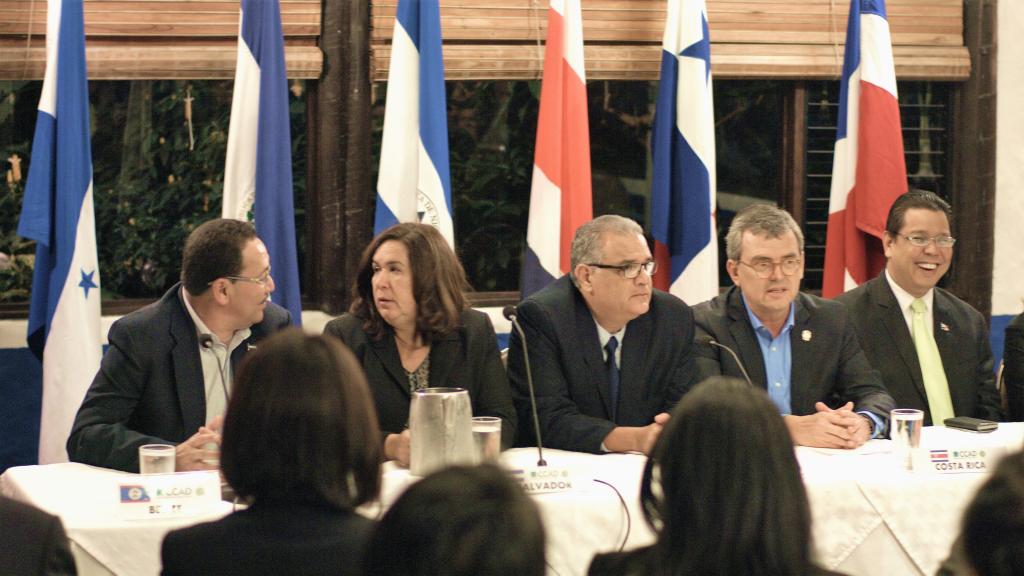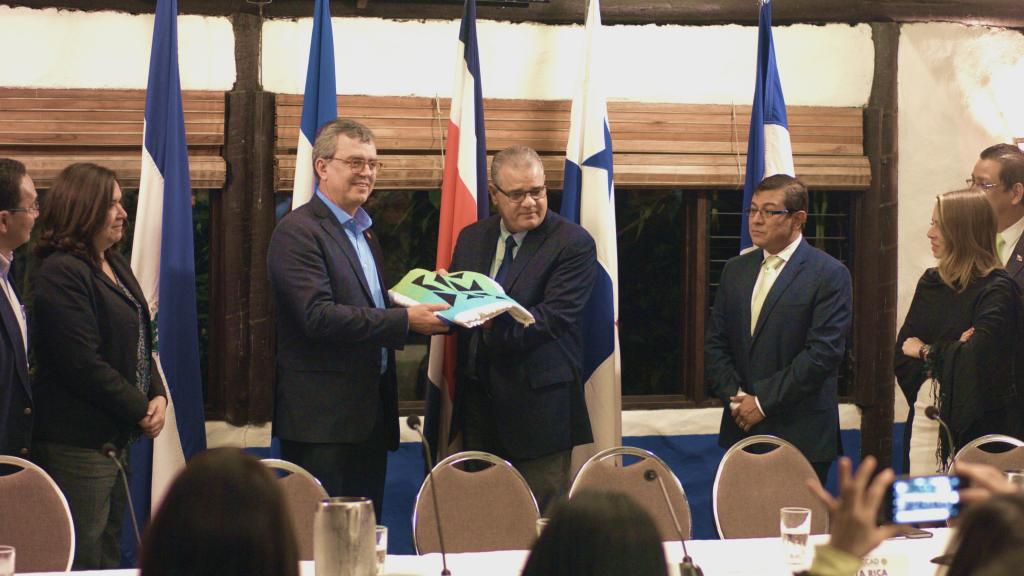Central American Ministers Highlight the Importance of a Regional Approach to Climate Change Learning
UN CC:Learn Ambassador, Daniel Abreu presented UN CC:Learn to Ministers in Central Amrerica
2 February 2017, San Jose, Costa Rica - UN CC:Learn Ambassador Mr. Daniel Abreu had the opportunity to present progress of the UN CC:Learn project in Central America to Ministers and Vice Ministers of Environment of the eight member countries of the Central American Integration System (SICA). UN CC:Learn was featured at the Meeting of the Council of Ministers of the Central American Commission for Environment and Development (CCAD) in San Jose, Costa Rica.

Mr. Abreu explained that since 2015, UN CC:Learn has supported the joint efforts of the Dominican Republic, Belize, Costa Rica, Panama, Nicaragua, Guatemala, Honduras and El Salvador to build regional capacities to confront climate change issues. In Central America, the UN CC:Learn project builds on SICA’s 2010 Regional Climate Change Strategy and seeks to promote and facilitate the implementation of its climate change learning component through concrete actions.

To this end, UN CC:Learn has compiled and analysed the most relevant climate change learning initiatives developed by SICA countries, identifying national strengths and experiences to share as well as information gaps and other common challenges. The challenges have been discussed and addressed by the eight countries in a joint Action Plan, which is expected to accelerate regional climate change education, awareness raising and civil participation actions between 2017 and 2022.

The elaboration of a video on the vulnerability of Central America to climate change is one of the first activities of the joint Action Plan and is already underway. In San José, the Ministers and other representatives of the SICA countries, contributed to the video by sharing how they see that climate change education and awareness raising can help building resilient communities.
The Ministers also showed their interest and support to the next activities of UN CC:Learn, including a webinar and a workshop on funding mechanisms for climate change learning activities, which will take place in March and April 2017. These activities will help the SICA countries identify funding opportunities for the next phase of UN CC:Learn project in the region.
For more information about UN CC:Learn in Central Amreica, please access here: http://www.uncclearn.org/national-projects/un-cclearn-central-america
About UN CC:Learn
UN CC:Learn is a partnership of more than 30 multilateral organizations supporting countries to design and implement systematic, recurrent and results-oriented climate change learning. At the global level, the partnership supports knowledge-sharing, promotes the development of common climate change learning materials, and coordinates learning interventions through a collaboration of UN agencies and other partners. At the national level, UN CC:Learn supports countries in developing and implementing national climate change learning strategies. Through its engagement at the national and global levels, UN CC:Learn contributes to the implementation of Article 6 of the UNFCCC on training, education and public awareness-raising, and the 2012-2020 Doha Work Programme. Funding for UN CC:Learn is provided by the Swiss Government and UN partners. The Secretariat for UN CC:Learn is hosted by the UN Institute for Training and Research (UNITAR).
Photo 1: Participants at the meeting of the Council of Ministers of the Central American Commission for Environment and Development
Photo 2: UN CC:Learn Ambassador Mr. Daniel Abreu
Photo 3: Participants at the meeting of the Council of Ministers of the Central American Commission for Environment and Development 2

